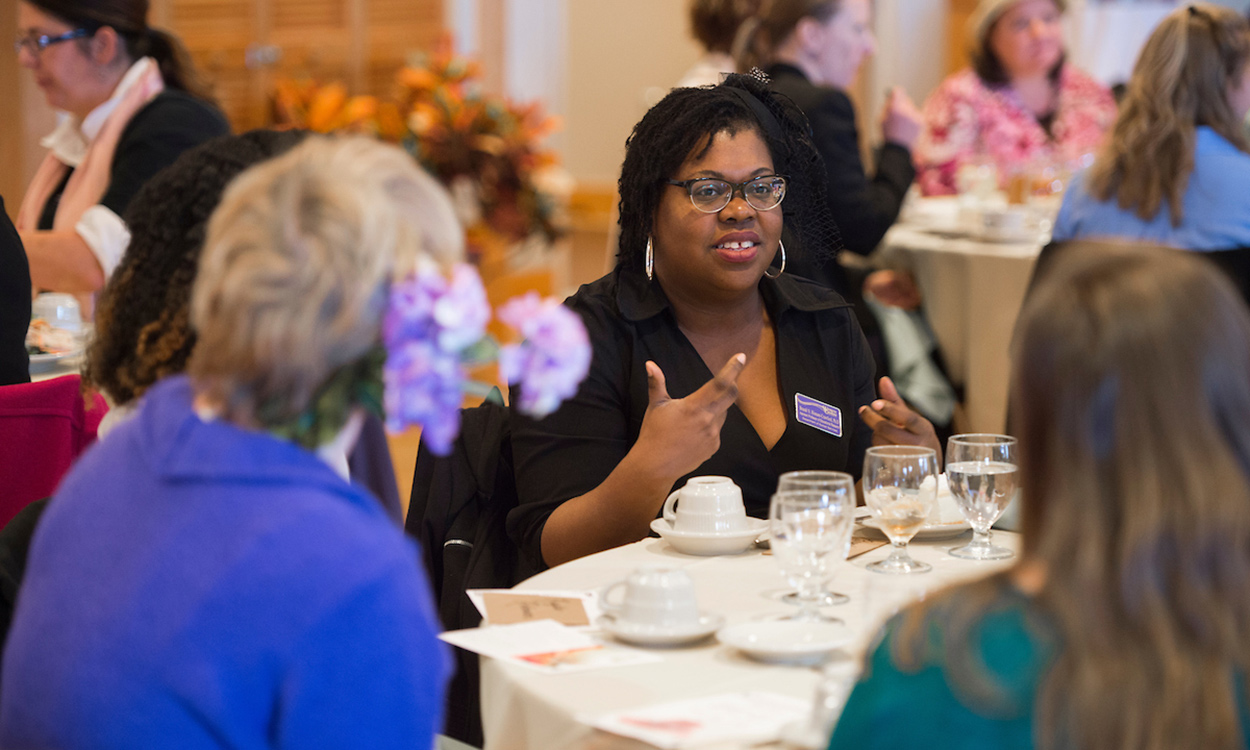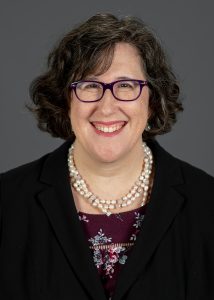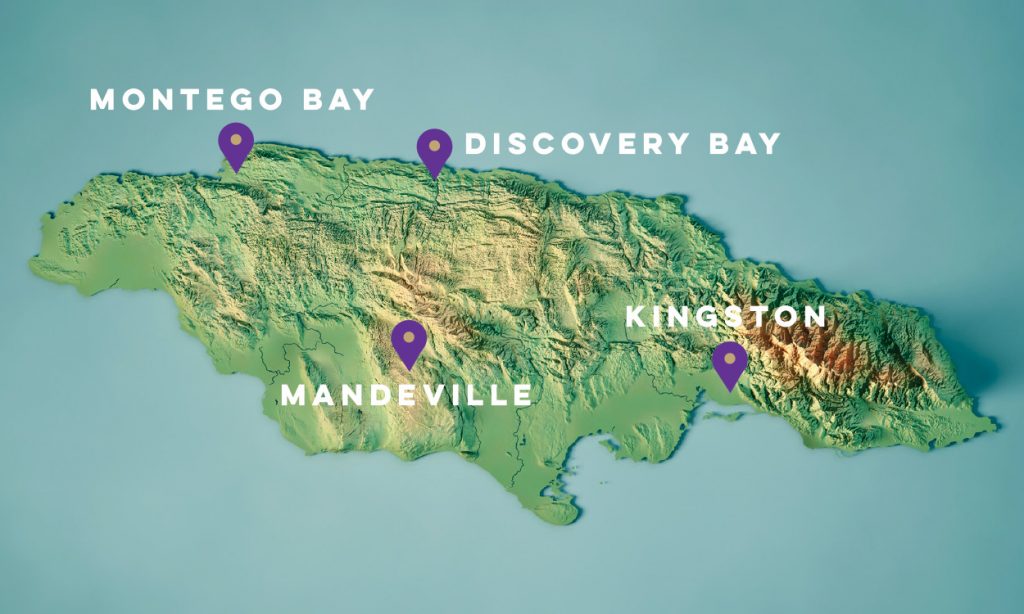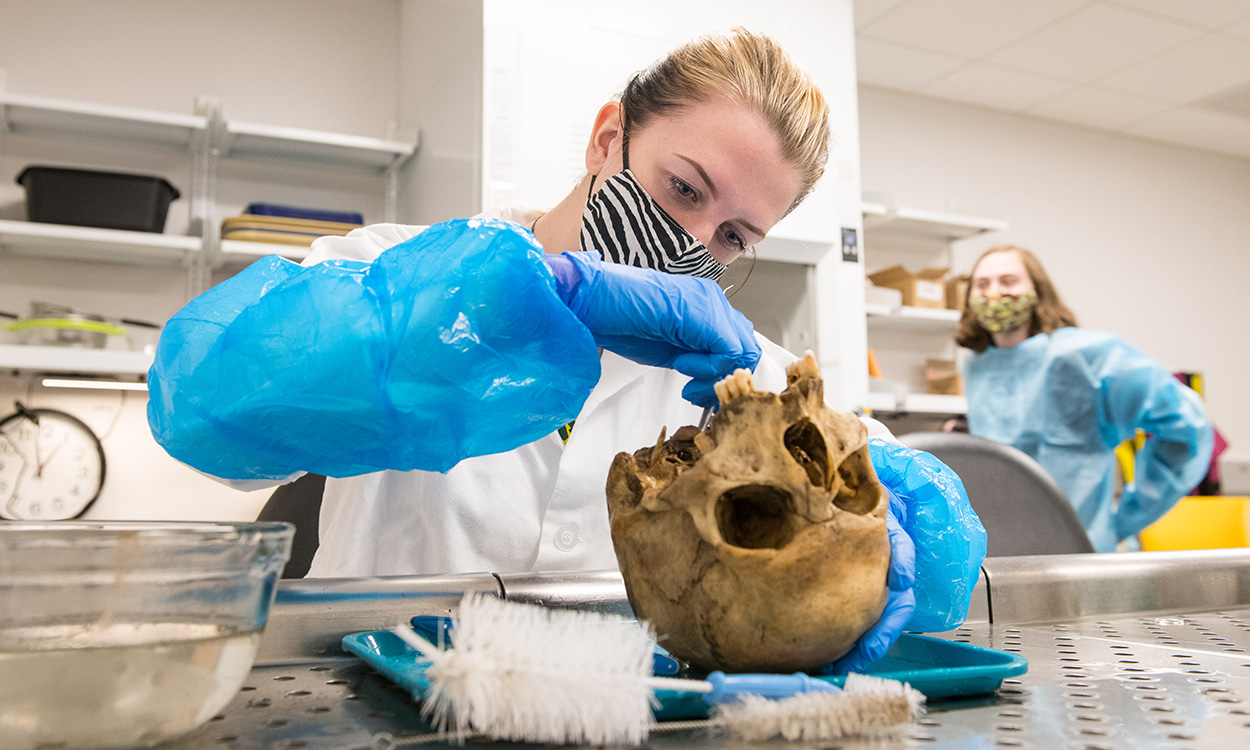WCU professors eagerly assist Jamaican teachers with online instruction

Brandi Hinnant-Crawford was one of four WCU professors that hosted a Zoom session for Jamaican teachers on distance learning.
When Dale Carpenter, a professor in Western Carolina University’s School of Teaching and Learning, got a request from Jamaican teachers for a session on distance learning and sought volunteers, without hesitation, four professors jumped at the opportunity.
Brandi Hinnant-Crawford, assistant professor in the Department of Human Services; Adrienne Stuckey, assistant professor in the School of Teaching and Learning; Tammy Barron, assistant professor and Exceptional Children’s Program Director at the Catamount School; and Lisa Bloom, the Jay M. Robinson Distinguished Professor of Educational Technologies, have all taught in Jamaica through WCU’s Jamaica Program and were eager to share with many of their former students on the topic “Engaging and Motivating Distance Learners.”
Carpenter received the request from Ottis Brown, president of the WCU Alumni Chapter in Kingston, Jamaica. Similar to some places in the U.S., Jamaica has struggled to provide education during a shift to distance learning because of the COVID-19 pandemic.
Since the 1970s, WCU has provided education and training to Jamaican teachers through its Jamaica Program. Having taught in Jamaica and knowing some of the challenges the teachers are faced with, Hinnant-Crawford, Stuckey, Barron and Bloom were more than happy to share tips and advice, as well as provide resources to help with their instruction.
“The reason I said yes right away was because I actually had something that was relevant to share, something that I had been working on with one of my online classes,” Stuckey said. “I had my graduate students in an unrelated course working on teaching podcasting in previous semesters, so I knew I had instructions, and I knew I had experience helping students navigate the process, and I knew there was a good research base on my topic.”

Adrienne Stuckey
The four professors shared information to more than 135 teachers from across Jamaica through a Zoom session, featuring Power Point presentations, that lasted about an hour and a half.
Stuckey’s presentation was titled “Creating Audio-Visual Teaching Podcasts.” She explained what podcasts are and that there are certain types of video podcasts that have a research base in special education, the area in which she specializes. Stuckey shared some sample videos and provided helpful links that are now accessible to the teachers.
“One of the limitations in Jamaica is bandwidth and access to software,” Stuckey said. “We all know that the internet is less accessible and the account structures are really different. Their children might be limited in the amount of access to the internet they might be able to get in a day. Then, the whole family might be sharing the same phone to be able to access the internet. We try to be really sensitive to those practical barriers they might encounter and give them ways around them.”
Hinnant-Crawford’s presentation was on “Digital Pedagogy: Advice for Migrating to Online Instruction.” She gave the participants a nine-part approach to digital pedagogy. First, there were the four pillars – know your purpose/objective, consider how you will present information, borrow before you create, and think about access and equity. Next, Hinnant-Crawford shared what she called the 5 B’s – be explicit, be accessible, be creative, be student-centered and be yourself.
“Even though you’re moving to an online environment, you are an educator so trust your gut, do what you feel is right, and don’t lose yourself in the technology,” she told them.
Barron’s session was on “Catamount School Plan for Online Learning,” while Bloom talked about “Online Engagement: Lessons from Video Games.” During the presentations, the Jamaican teachers lit up the chat box with questions and positive feedback.
 “You saw a number of folks saying, ‘This is very informative. This will be very helpful
at my school,’” Hinnant-Crawford said. “They did give you that instantaneous feedback.
My conversations with other people in the country were, ‘Oh, I didn’t know about this.
Can you send us the link? Can you make this available to people in Montego Bay?’”
“You saw a number of folks saying, ‘This is very informative. This will be very helpful
at my school,’” Hinnant-Crawford said. “They did give you that instantaneous feedback.
My conversations with other people in the country were, ‘Oh, I didn’t know about this.
Can you send us the link? Can you make this available to people in Montego Bay?’”
Not only was the session beneficial to the Jamaican teachers, but WCU professors said they learned a lot from listening to their colleagues’ presentations.
“I’m the only one who is not in the School of Teaching and Learning,” Hinnant-Crawford said. “I don’t get a lot of opportunities to see people in other colleges teach and share what they know. It was very informative just listening. Everybody had something different to give those teachers and I think in listening to each other, we also got things for ourselves.”
Stuckey added, “It was very fun to hear my colleagues share. It just reminded me we need more opportunities to hear each other’s work and learn from each other. A lot of times we’re so focused on teaching students that we don’t necessarily get chances to hear each other’s work. It was kind of stimulating and motivating to think about so many different ways of coming at it.”
Carpenter was pleased with the willingness of the professors to assist the Jamaican teachers.
“These great faculty members truly exemplify the mission of the College of Education and Allied Professions as we prepare the helping professions – the difference makers in our communities,” Carpenter said. “This professional development is yet another example of our wonderful partnership with Jamaican teachers and schools.
“When we think about digital pedagogy, there is much to consider. First and foremost, teachers must consider what barriers that exist and how we might reach the most inaccessible corners with remote learning. Technology does not become synonymous with learning outcome – it can be a tool that enables learning outcomes. We can learn to embrace digital tools in ways that allow us to better understand how students learn, the most effective learning methods for remote settings, and to increase engaged learning.”

